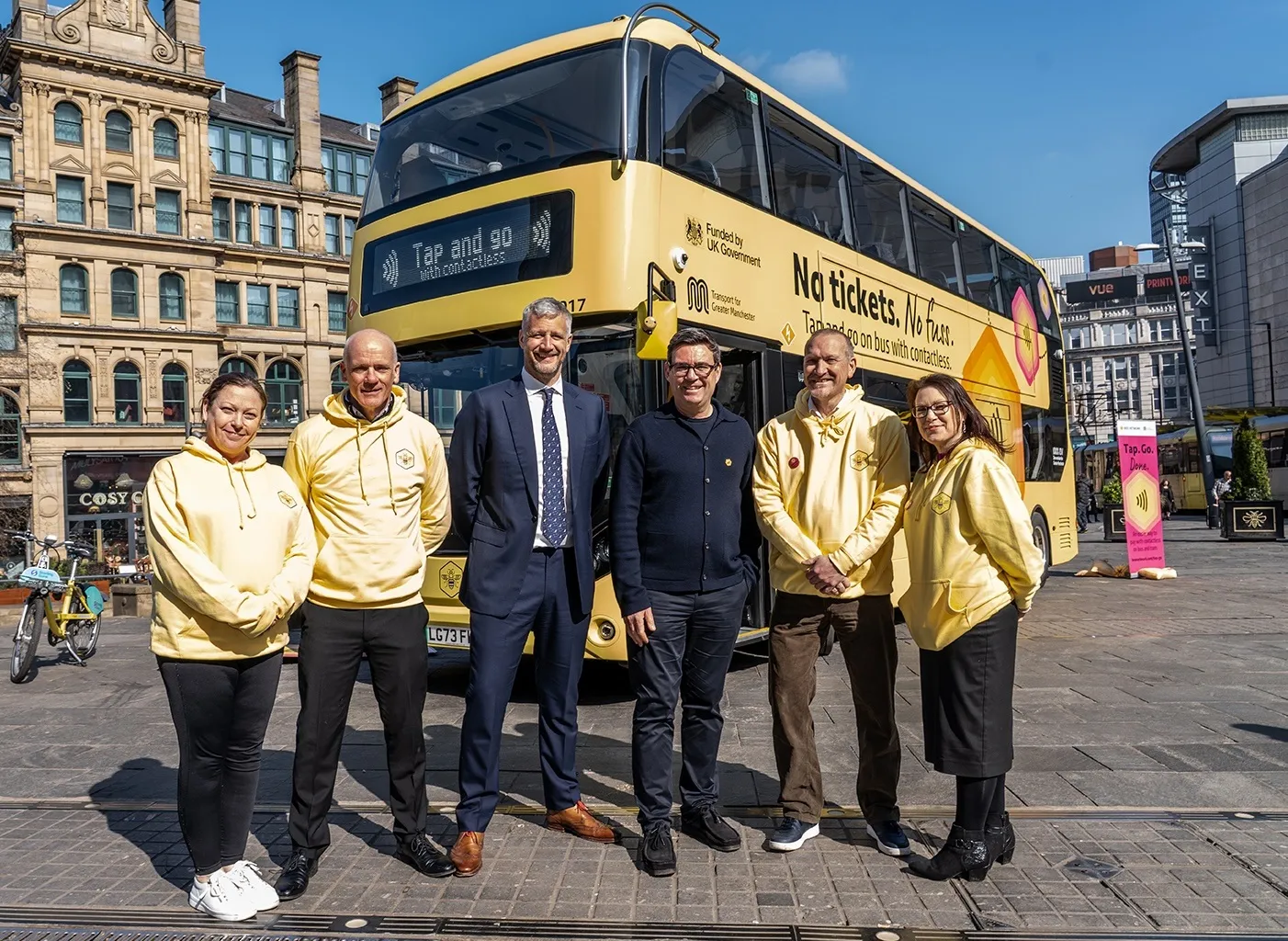
Transport for Greater Manchester (TfGM) has rolled out tap and go payment across its Bee Network buses and trams.
The UK regional transport agency is using Vix Technology’s account-based ticketing back office, which works out the best available fare based on the number of trips riders make.
“TfGM has raised the bar for regional transport, creating a safe, reliable, integrated, affordable and effortless travel experience for everyone," says Vix CEO Aaron Ross. "The introduction of multimodal Tap and Go enhances daily travel for millions."
TfGM is the first local transport authority in England to use bus franchising powers to take control of its bus network.
It introduced contactless payment on the tram network in 2019 - TfGM says there have so far been 50 million contactless journeys - and extending this to buses is seen as a key milestone in enabling integrated transport.
With Visa and Mastercard contactless payments, passengers can use a physical card as their ‘travel token’, or a payment device with a digital wallet such as Google Pay or Apple Pay.
A single tap-on is required on buses, but trams are tap-on and tap-off.
“Tap and Go is a real game changer for the Bee Network as the quickest and easiest way for passengers to pay for their bus and tram travel," says Helen Humble, head of ticketing at TfGM.
“Contactless technology means that fares are automatically calculated to ensure our passengers pay the best value up to the daily or weekly cap under a much simpler fare structure."
Ross concludes: "In under 18 months, we’ve helped deliver a seamless, stress-free travel experience that’s redefining regional transport standards in the UK. Manchester is now a beacon for inclusive, accessible, and affordable mobility."








